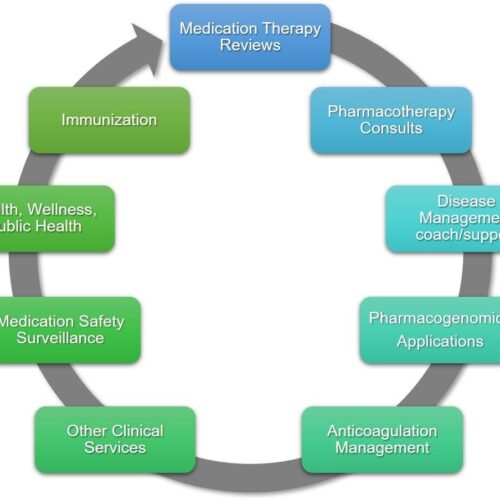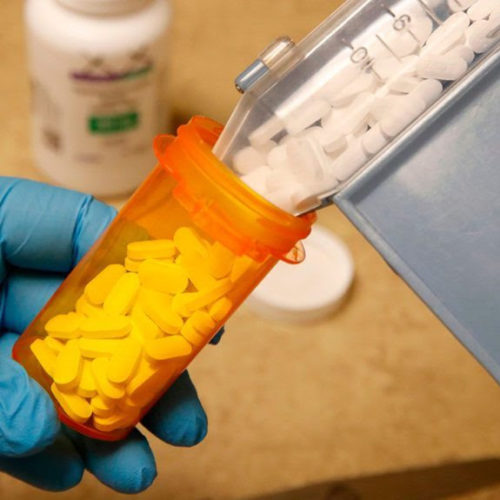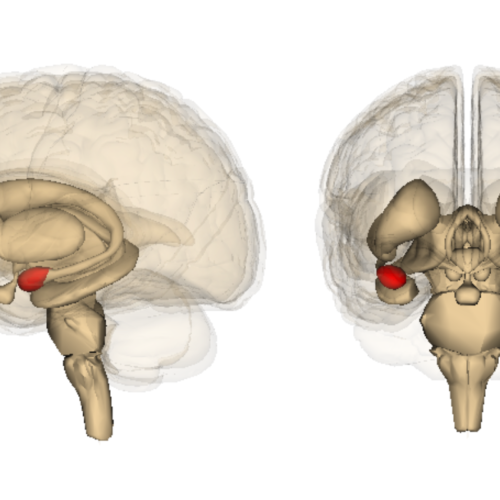A common medication used to treat reflux, heart burn, and ulcers could lessen the effectiveness of lung cancer immunotherapy drugs, according to new Flinders University research. Published in Nature’s British Journal of Cancer, the study investigated the impact of proton pump inhibitors (PPIs) on patients undergoing treatment for non-small-cell lung cancer, the most common type of...
Tag: <span>Medication</span>
Medication Therapy Management (MTM)
Introduction As a group medical practice pioneering in Regenerative Medicine that focuses on helping patients with chronic and complex conditions nationwide, we prioritize performing Medication Therapy Management (MTM) as part of clinical care management. Our Clinical Pharmacist reviews all medications prescribed by all prescribers providing care to the patient, and any over-the-counter, supplements and herbal...
Medication may help heavy-drinking smokers’ health
by University of California, Los Angeles Credit: CC0 Public Domain A recent UCLA clinical trial has shown encouraging results in helping daily smokers who are also heavy drinkers quit smoking and cut down their alcohol intake. The study of 165 people tested two prescription drugs—varenicline, for smoking addiction, and naltrexone, which is used to treat alcoholism. Studies have...
Can hydroxychloroquine treat COVID-19?
Hydroxychloroquine is a medication that doctors prescribe to treat a variety of conditions, including malaria, arthritis, and lupus. Recently, some doctors had been using hydroxychloroquine to treat severe cases of COVID-19 in hospitalized patients. Its use for this purpose has been controversial and conflicting, with some researchers reporting heart problems among those taking the drug....
TB MEDICATION COULD FIGHT FEAR AND ANXIETY
A medication used as a second line of defense against tuberculosis could enhance therapy for fear and anxiety disorders, according to a new clinical study. D-cycloserine (DCS) has landed itself on the World Health Organization’s list of essential medicines for its abilities to stop the growth of bacterial cell walls. In recent decades, however, mental...
What to know about notalgia paresthetica
Notalgia paresthetica (NP) causes itching and, sometimes, pain on the back. It usually affects a specific patch of skin, rather than causing generalized pain or itching. The itch commonly appears under the shoulder blade, often on the left side. NP is a type of nerve pain, meaning that it is a problem with how the...
Inactive pill ingredients could raise the dose of your medication
by Kim Martineau, Massachusetts Institute of Technology The average medication contains a mix of eight “inactive” ingredients added to pills to make them taste better, last longer, and stabilize the active ingredients within. Some of those additives are now getting a closer look for their ability to cause allergic reactions in some patients. But now,...
Blood pressure drug linked to lower risk of gout
BETH ISRAEL DEACONESS MEDICAL CENTER Boston – Affecting more than 7 million adults in the United States, gout is characterized by a sudden onset of pain, swelling and stiffness in the joints and caused by the formation of urate crystal in small spaces between joints that builds up when high amounts of uric acid circulate...
Dartmouth study assesses fracture risk for patients taking multiple medications
THE GEISEL SCHOOL OF MEDICINE AT DARTMOUTH There is a strong association between the number of fracture-associated drugs (FADs) older patients receive and their risk of sustaining a broken bone, according to a new Dartmouth study published in JAMA Network Open. In recent decades, the use of prescription medications has increased dramatically in the U.S....
New study may have the reason why heart medication gives muscle pain
A study from McMaster has found a potential mechanism explaining why some people who take drugs to lower their cholesterol develop sore, aching muscles. The use of statin drugs to significantly lower cholesterol, and ultimately reduce the risk of cardiovascular disease, has become widespread and large-scale studies suggest that nearly half of Americans and a...






